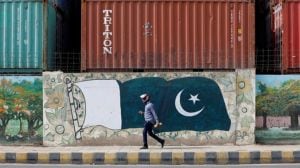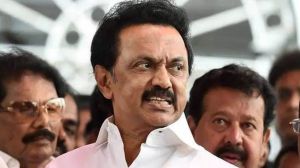Power with responsibility
Indians awoke yesterday to read headlines that were so much out of tune with the realities and perceptions in the country that the core reac...

Indians awoke yesterday to read headlines that were so much out of tune with the realities and perceptions in the country that the core reaction was to set it aside as a mistake made by the prime minister in the choice of his words, or by the media in what they heard. At the joint media interaction with German Chancellor Gerhard Schroeder, Prime Minister Manmohan Singh was reported to have said that the time was not ripe for India to sign the NPT. A logical corollary would be that it might sign it at some future date when the time would presumably be right. But the only way it can sign is by giving up its nuclear weapons; and that can happen only if universal nuclear disarmament becomes a reality.
It is true that the US and other members of the NPT remain committed to universal NPT adherence. But it has been far more pragmatic in its approach to India as the progress, however slow, on NSSP Next Steps in Strategic Partnership suggests. Sanctions on ISRO were recently lifted and US Under Secretary for Commerce and Industry Kenneth Juster is coming back to India for further discussions on the next steps. While we must not assume that the US would 8220;accept8221; India as a nuclear weapons state, we should also be confident that Washington seeks to build closer relations with India, which is 8212; as Manmohan Singh pointed out 8212; a responsible nuclear weapon power.
The international community and India have to work together to find mutually acceptable solution to the apparent divergence on the issue of NPT. India has actually pursued the principles of non-proliferation beyond what the NPT specifies and the performance of many treaty members. India, like the rest of the world, has a stake in non-proliferation as much as it has a responsibility to ensure its legitimate national defence. But what needs due attention are the imperatives of human development which stands to lose if the rigours of non-proliferation measures are indiscriminately applied. The challenge for the international community is not NPT, but how to harmonise non-proliferation and sustainable development in the future.
- 01
- 02
- 03
- 04
- 05































